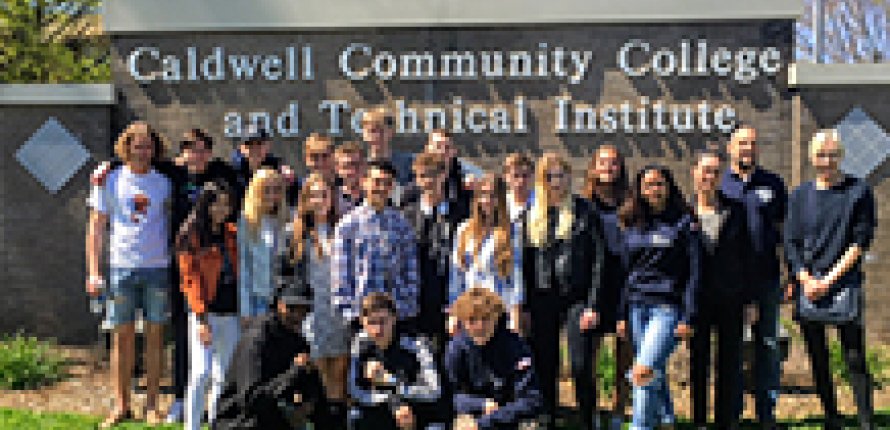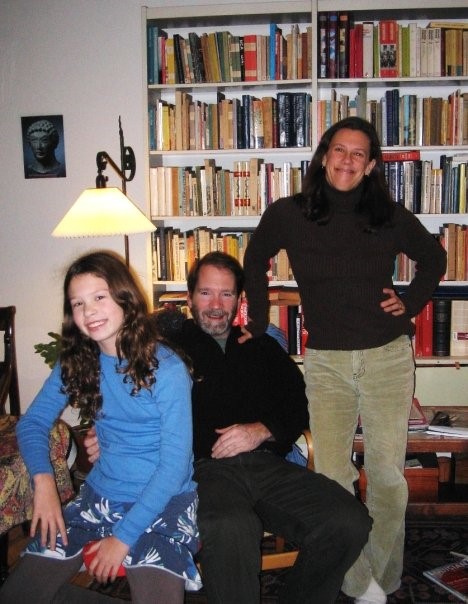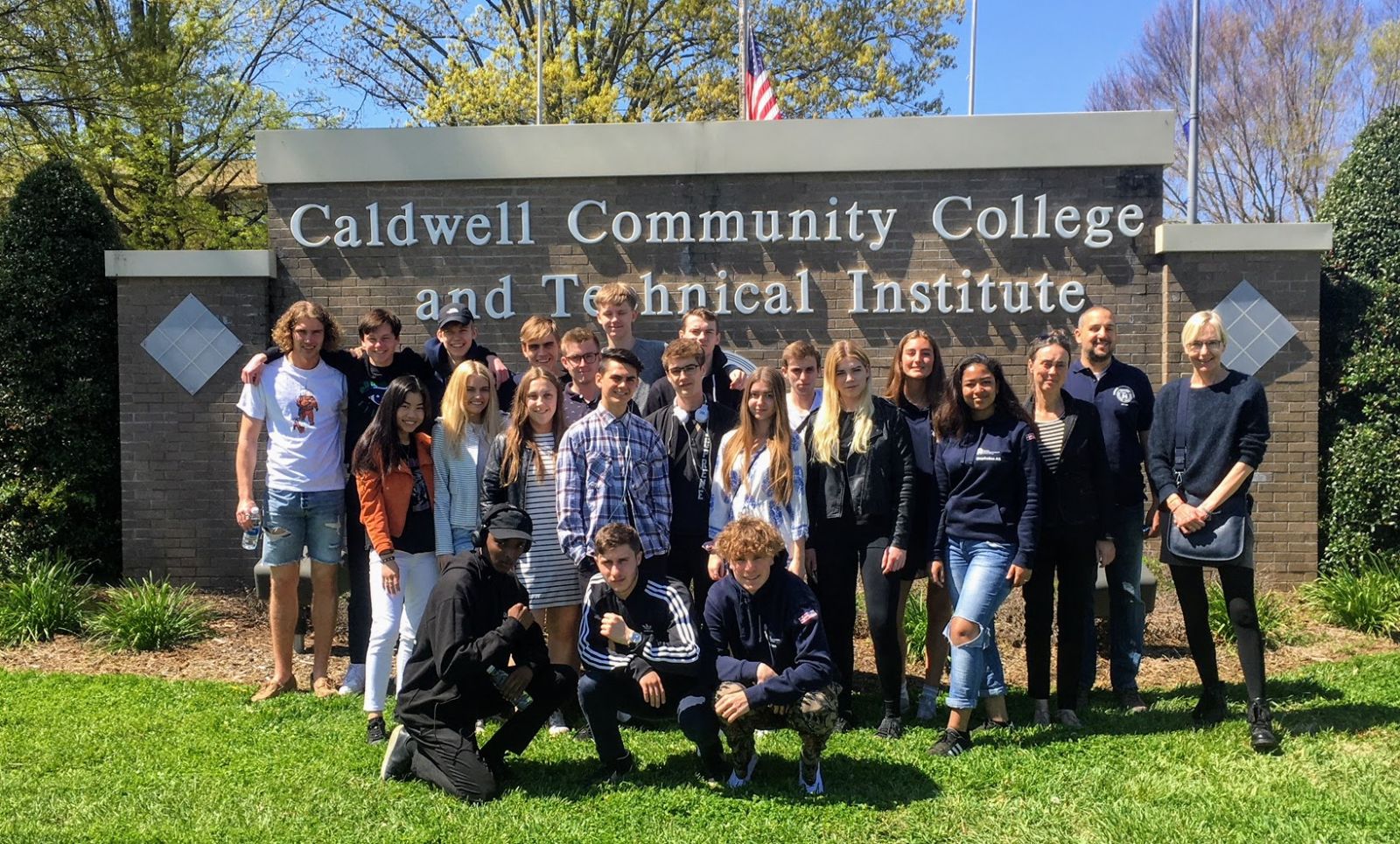Connecting North Carolina and Denmark: Reflecting on the 10 Year Anniversary of My Fulbright

Sarah Russell, Academic Dean and Director of Undergraduate Research Support Office, Trinity College
2008 Fulbright U.S. Scholar to Denmark
 In 2008, I spent the fall semester with faculty and students at the Aarhus Business College (Aabc) in Jutland, Denmark. I anticipated that it would be an easy sojourn. After all, I was going to a small, safe, mostly English-speaking country, with my daughter and husband in tow, to work with people who were interested in and ready to engage about American culture and history.
In 2008, I spent the fall semester with faculty and students at the Aarhus Business College (Aabc) in Jutland, Denmark. I anticipated that it would be an easy sojourn. After all, I was going to a small, safe, mostly English-speaking country, with my daughter and husband in tow, to work with people who were interested in and ready to engage about American culture and history.
But, to be honest, for much of the time, I struggled. I knew that Denmark was well-known for its strong commitment to social equality, but I was surprised by the casual, non-deferential way Danish students addressed me by my first name – and it discomfited me to acknowledge this, as a left-leaning American who spent her adult life espousing and teaching the importance of social equality. I secretly disapproved of the lack of discipline in the Danish classroom. I bristled at the subtle digs that Danish colleagues leveled at American religion, politics, racist history, Wal-Mart, and more. Luckily, this was a U.S. presidential campaign year, and the day after that election, I received so much love and congratulations for Obama’s victory it was as if I had personally engineered a moment of political enlightenment.
Even so, I had to confront my own inflexibility and fragility regarding a lot of things. Here is a short list of things that bothered me about Denmark:
- No Half and Half for my coffee
- No Mexican food
- No stores are open on Sundays
- Small bed pillows
- Smelly cheese
- Having to squeegee to dry the bathroom after a shower
- The weather – that leaden, greyness that encroaches in ever-increasing degrees as the season moves towards winter.
Nonetheless, by the time I returned to North Carolina following my Fulbright award, I had acquired a few very good friendships, and an appreciation for Danish Smorrebrod, but I was not sure what else I had accomplished. I had no structure or idea in place to build on the experience. I wondered if this was just a blip on the screen of my career in education that would gradually fade as I slipped back into daily routine.
Happily, my Danish colleagues did not see this as the end of our relationship, and they suggested we find ways to build a community connection between Aarhus and North Carolina. With that in mind, three instructors from Aabc - Nanna Voss, Heidi Madsen and Lars Bech - came to Durham in 2010, and I arranged for them to meet variously with educators at the local high school, the local community college, the UNC School of Business and a non-profit organization that coordinates educational initiatives for North Carolina community colleges. Some of these meetings sparked exciting plans for future collaborations between Aarhus and North Carolina.
The first of these involved a mutual exchange program between Aabc and Riverside High School in Durham. In 2011, Aarhus students and teachers spent a week attending high school classes, touring local North Carolina businesses, meeting and mingling and practicing English with teenagers, at Riverside, and at the North Carolina School of Science and Math, my home institution at the time.
Of this visit, Danish student Rasmus Malling, noted: “I love the American culture and the people, so our stay in North Carolina made a huge impression on me. . . It was so exciting to see a real high school - like the ones you see in movies. I feel like the U.S school system is so different compared to the Danish school system. I felt like people were very passionate about schools and you can really feel that most students want to achieve something in life. That was very inspiring. People were so welcoming, and that really touched all of us. We felt like we had known you guys for years.”
Alice Larsen offered a comparison: “In North Carolina my experience was all about Who i.e. family, the people at school etc. In our visit to Washington, D.C. and New York City it was all about What: Architecture, museums, and such. In many ways the former is what has had the biggest impact on my worldview. Maybe because in North Carolina I was constantly presented with new ways of thinking about what I saw.”
For a few years, the arrangement with Riverside High School was a true travel exchange. In the same years Aarhus students came to Durham, Riverside students traveled to Denmark to attend classes in Aarhus, learn about Danish life and the importance of handball. Just as North Carolina represented a different view of the U.S., compared to iconic images of New York City or Los Angeles, for the Danes, for many North Carolinians, learning about a small city in Scandinavia offered an alternate view of Europe; a valuable contrast to the typical images of the Thames bridge, French bistros (cue that corny accordion music!) and the Roman coliseum.
Aarhus Business College students visiting Caldwell Community College in Spring 2018
In 2014, another group of Aabc students and teachers initiated the first of what would become semi-annual visits to Caldwell Community College in Hudson, NC. In contrast to relatively cosmopolitan and diverse Durham, Hudson is a truly small, rural southern town. Jimmie Griffith, who coordinates the Aarhus program for Caldwell, said that visit provides a unique value for European students. He notes that the town is small and the Danish visit is “a big deal” for everyone. The whole community is “super supportive” and wants to be involved. There are meetings with town dignitaries, trips to local businesses, breakfast at the fire station. “This is not New York or Florida, it is the real United States and [the Danes] are welcomed with great hospitality.”
The Aarhus visit to Caldwell Community College has become a regular event, but, sadly, not all connections and exchanges could be sustained. By 2016, Kathie Davidson who had run the program at Riverside High, left the school, and there were no other instructors encouraged or supported in taking it over. The student newspaper lamented the loss, noting that the program’s absence “left a gaping hole in our education.” An initial effort to create an exchange with another community college did not launch. At both institutions, the lack of broader administrative support for these efforts reflected the fact that global experiences are not prioritized at community colleges and public high schools in much of the United States. Davidson noted that that the combination of “community, school, and personal funding limitations made the program difficult.” The Danish visits to Caldwell Community College continue largely to the singular efforts and commitment of Griffith, and he admits that none of the Caldwell students or faculty have been able to make the trip to Denmark, due to the fact their small town is located in a “high poverty area.” There is a need to support this kind of global experience for American students who do not have the wealth and resources for conventional study abroad programs.
Meanwhile, inspired by my Fulbright, I took a job at Duke University, creating programs and advising students on the value of global and cross-cultural experiences. I continued to nurture my relationship to Denmark, and encouraged many Duke students to pursue study abroad experiences in Copenhagen. One recently noted that my encouragement was critical in encouraging him to mesh his studies in environmental policy with coursework at the Danish Institute for Study Abroad. Another of my students, Sakura Takahashi, went on to create a research project on educational psychology with the help of one of my colleagues in Aarhus. She noted that my insight “into Danish culture convinced me that it would be an interesting cultural contrast to both the United States and Japan. Also, although this became clearer in hindsight, it would have been much harder to find contacts and participants in a country I’ve never been to without talking to someone who has connections there beforehand.
I have returned to Denmark three times since 2008, and have visited with my former Danish colleagues, now friends, both in Denmark and in the U.S. I don’t know how much Senator Fulbright worried about U.S.-Danish relations when he sought to build connections between the volatile national identities of the early Cold War. But I feel satisfied that, at this, the ten year anniversary of my Fulbright award, my participation did indeed make real the Senator’s belief that, “educational exchange can turn nations into people, contributing as no other form of communication can to humanizing human relations.” I am pleased that my grant inspired so many connections between Jutland and North Carolina. I would love to see global outreach efforts extend to all our educational communities, so we can build on the remarkable cultural encounters that the staff and faculty of Aarhus Business College, Riverside High School and Caldwell Community college were able to create for their students.

